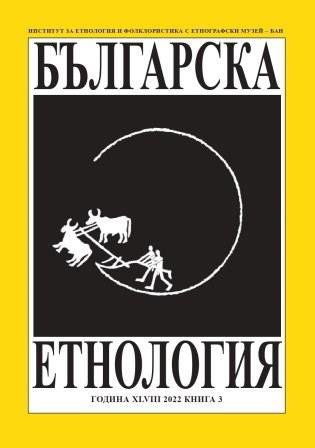От Молдовския Кортен до Алтай и обратно в Тарутино, Украйна. „Голямата“ тема за съветските депортации в „малките“ истории на българите от Бесарабия. 1.
From the Moldavian Corten to Altai and Back to Tarutino, Ukraine. The “Big” Subject of Soviet Deportations in the “Small” Stories of the Bulgarians from Bessarabia. Part 1
Author(s): Galin GeorgievSubject(s): Anthropology, Social Sciences, Customs / Folklore, Ethnohistory, Oral history, Social history, Recent History (1900 till today), Cultural Anthropology / Ethnology, Culture and social structure , Pre-WW I & WW I (1900 -1919), Interwar Period (1920 - 1939), WW II and following years (1940 - 1949), Post-War period (1950 - 1989), Transformation Period (1990 - 2010), Present Times (2010 - today), Migration Studies, Ethnic Minorities Studies, Globalization
Published by: Институт за етнология и фолклористика с Етнографски музей при БАН
Keywords: Urals; Siberia; deportations; Bulgarians from Bessarabia; repressions; return to the place of birth
Summary/Abstract: The present study once again directs the interest to the topic of deportations, or the so-called moving-away in the vernacular tongue, of Bulgarians from Bessarabia to the regions of the Urals and Siberia, and also in other remote parts of the USSR in the 1940s and 1950s, as a result of the policy of collectivization and the related repressions. The study was implemented in relation to a project of the Institute of Ethnology and Folklore Studies with the Ethnographic Museum – BAS, named“Bulgarians in the Urals and Siberia in the 20th – 21st centuries: history, culture, identity”, financed by the “National Science Fund” under contract KP-06-Russia-2 –27.09.2019, within the framework of the bilateral cooperation program Bulgaria –Russia (2018 - 2022) and the Russian Fund for Fundamental Research (Российскийфонд фондументальных иследование) – project Number 19-59-18003. The author of the study conducted field ethnographic research in the town of Tarutino, Odesa region, Ukraine, where in 1958-1959, in several waves, some of the 80 families fromCorten, Moldova– previously deported to Siberia in 1949, returned and settled. Along with the percentage of deported families, a special impression in the case under consideration is made by their compact settlement in several vicinities of the Altai krai, as well as their return and reestablishment in the same place altogether – in the present-day city of Tarutino, Odesa Region, Ukraine, in the nearby settlements ofPodgornoe, Berezino – all former German colonies, as well as in Corten itself. Thus, evacuation, emigration and life away from the place of birth, spent in an isolated, foreign ethnocultural and geographical environment, can be seen as a kind of ahistorical experiment regarding culture as a system of persistent and dynamic elements, of interrelationships and influences, as well as of stable, non-changing components.
Journal: Българска етнология
- Issue Year: 2022
- Issue No: 3
- Page Range: 349-367
- Page Count: 19
- Language: Bulgarian

